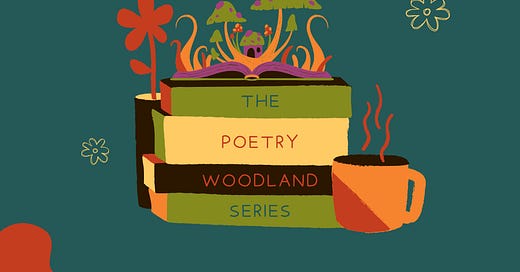The Poetry Woodland Series: On My Dear Grand-Child Simon Bradstreet, Who Dyed On 16. Novemb. 1669. Being But A Moneth, And One Day Old.*
Public domain poetry readings & analysis. Vol. 3 | Anne Bradstreet's poems 🪴
On My Dear Grand-Child Simon Bradstreet, Who Dyed On 16. Novemb. 1669. Being But A Moneth, And One Day Old.*
by Anne Bradstreet
No sooner come, but gone, and fal'n asleep, Acquaintance short, yet parting caus'd us weep. Three flours, two scarcely blown, the last i'th' bud, Cropt by th' Almighties hand; yet is he good, With dreadful awe before him let's be mute, Such was his will, but why, let's not dispute, With humble hearts and mouths put in the dust, Let's say he's merciful as well as just. He will return, and make up all our losses, And smile again, after our bitter crosses. Go pretty babe go rest with Sisters twain Among the blest in endless joyes remain.
*This poem is in the public domain!
Anne Bradstreet (Anne Dudley - 1612-1672) was from Northamptonshire, England, and later immigrated to the American colonies, settling in Ipswich, Massachusetts with her family, husband, and eight children. Bradstreet became one of the first poets to write English verse in the American colonies. “The Tenth Muse” was her only poetry collection published before her death. Bradstreet’s most famous & highly regarded work, Contemplations, wasn’t published until the mid-nineteenth century. Please read more about her life and work here.
This poem made me think about how the death of a child induces a universally agonizing ache, coupled with a questioning of reason—a child’s death doesn’t seem to have a greater purpose re: religion and/or the accumulation of sin. Therefore, there is and was fear for the child’s soul. Bradstreet’s poem, however, takes a firm stance: believing that her grandchild is good and just, so much so that he will experience endless joy and peace, perhaps even returning to bless these upon his living relatives. Interestingly, in the fourth line, Bradstreet crafts a bit of ambiguity—it’s not 100% clear whether she’s talking about her grandson or God…the poem, I think, could be read as if about either.
Further, this thought thread brought me to Gaza, Sudan, The Congo, Syria, Lebanon, Haiti, and many other places where the death of children is horrifically common. There’s a powerful reclaiming in refusing to believe that there’s no greater purpose for the murder of a child (or anyone for that matter). The infant mortality rate in the 1600s—when Bradstreet’s poem was written—was high, so perhaps there’s a more intimate reckoning with how fleeting life is, specifically that youth doesn’t guarantee it. Could this be especially true of a grandmother mourning a grandchild (a layered mother, twice over)? A grandmother has lived and seen more life, and it’s a critical act of resistance when she doesn’t allow the gnaw and burn of loss to diminish or numb; when she feels with the same scraping intensity as she did before having grandchildren. I’d be curious to hear your thoughts on this; I’m positive there’s more nuance to be discussed…





